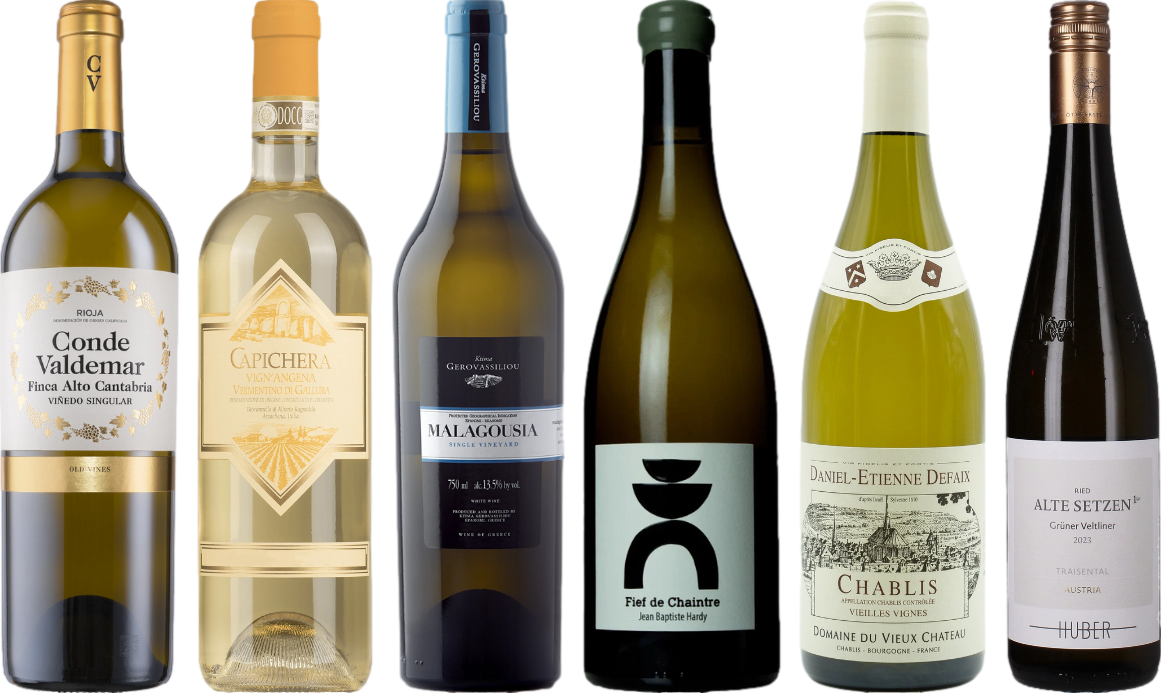



Yes, many varieties of this popular fermented beverage can align with a plant-based lifestyle. However, it’s essential to dig deeper, as the production process may involve certain fining agents derived from animals. Common fining agents include isinglass (fish bladder), gelatin, and egg whites, which can be used to clarify the liquid.
To ensure you’re selecting an option that meets your dietary preferences, I recommend looking for labels that explicitly state “no animal-derived fining agents” or “suitable for plant-based diets.” Additionally, many producers are increasingly adopting alternative methods, like using bentonite clay or activated charcoal, to achieve clarity without compromising ethical standards.
If you’re uncertain about a specific bottle, researching the producer or reaching out to them directly can provide clarity. Many vineyards are proud of their practices and are more than willing to share information regarding their production methods. As a passionate educator and sommelier, I find it fulfilling to guide individuals through these choices, helping them discover delightful options that resonate with their values.
Is White Wine Vegan?
Many options, particularly in the realm of fermented beverages, can align with a plant-based lifestyle. However, not all selections are created equal. Specific practices during production can introduce animal-derived substances, making some choices unsuitable for those avoiding animal products.
To determine if a particular bottle is appropriate, consider the following:
- Fining Agents: Commonly used substances such as isinglass (fish bladder), egg whites, or casein (milk protein) may be employed to clarify the liquid. Seek out options that utilize bentonite clay or activated charcoal instead, as these are plant-based alternatives.
- Labeling: Look for certifications or labels indicating that the product is free from animal-derived ingredients. Some producers explicitly state their offerings as suitable for those who avoid animal products.
- Producer Practices: Research the winery’s methods. Many establishments openly share their practices, allowing you to make informed choices. Smaller, organic producers often prioritize natural methods, enhancing the likelihood of finding compliant options.
As you explore various selections, consider engaging with knowledgeable staff at wine shops or restaurants. They can guide you toward suitable choices based on your preferences and dietary requirements.
In summary, while many fermented beverages can fit a plant-based lifestyle, diligence in checking production methods and ingredients is key to making the right selection.
Understanding Wine Production Methods
To determine if a specific varietal aligns with a strict plant-based lifestyle, it’s crucial to explore the production techniques utilized. Winemakers often employ fining agents to clarify and stabilize their beverages. Common fining agents include casein (milk protein), egg whites, gelatin (animal by-product), and isinglass (fish bladder). Thus, not all bottles are created equal when it comes to ethical considerations.
Look for terms like “unfined” or “unfiltered” on labels. These indicate that no animal-derived substances were used in the clarification process. Many producers are now opting for plant-based alternatives, such as bentonite clay or activated charcoal, which effectively achieve clarity without compromising dietary choices.
Additionally, the fermentation process can vary significantly. The use of sulfur dioxide as a preservative is common, but certain brands may limit its use or choose organic methods to enhance flavor profiles naturally.
It’s advisable to research individual producers or consult with knowledgeable staff at wine shops. They can often provide insights into the methods used and suggest options that align with your values, ensuring your selections meet your ethical standards.
Common Animal Products Used in Winemaking
Many individuals may not realize that various animal-derived substances can be involved in the production of certain beverages. Understanding these ingredients is crucial for those who wish to avoid animal products. Below is a list of common animal-derived agents used during the clarification and filtration processes:
| Animal Product | Purpose |
|---|---|
| Gelatin | Used as a fining agent to remove cloudiness and improve clarity. |
| Isinglass | A fish-derived product that helps clarify and stabilize. |
| Casein | A milk protein utilized for fining, enhancing clarity and taste. |
| Egg Whites | Traditionally used to clarify and soften tannins in certain reds. |
| Bone Char | Sometimes used in carbon filtration processes to remove impurities. |
Before selecting a beverage, it’s advisable to check the producer’s methods or look for specific labels indicating the absence of animal-derived ingredients. Many producers now offer options that are free from such components, providing a great alternative for conscientious consumers.
Identifying Vegan-Friendly Options
To select suitable selections, focus on labels that explicitly state “not fined with animal products” or “suitable for vegetarians.” Many producers are now transparent about their fining agents, making it easier to identify appropriate choices.
Key Producers and Regions
Several wineries prioritize animal-free practices. Look for brands like Frey Vineyards and Bonterra, known for their commitment to organic and sustainable methods. Regions such as California and Oregon often have a higher concentration of producers adhering to ethical practices.
Certifications and Labels
Seek certifications such as “Certified Organic” or “Biodynamic,” as these often correlate with more humane production methods. Some brands may display specific vegan certifications, which simplify the selection process further.
Reading Wine Labels: What to Look For
Examine labels for specific terms that indicate the absence of animal-derived fining agents. Look for phrases like “unfined” or “unfiltered,” which suggest that no animal products were used in the clarification process.
Key Terms to Identify
- Organic: Often implies fewer additives, though not always guaranteed to be free from animal products.
- Biodynamic: Focuses on holistic farming practices and may align with ethical standards, but check specific brands.
- Sustainable: Indicates environmentally friendly practices; further research may be necessary.
Additional Tips
- Research the producer’s practices online. Many wineries provide transparency about their methods.
- Consult apps or websites dedicated to listing suitable options. They can simplify your choices significantly.
- Attend tastings or events where you can ask winemakers directly about their processes.
For a delightful pairing experience, consider how to prepare your meals, such as how to cook filet mignon cast iron skillet gordon ramsay, to complement your selected beverages.
Popular Vegan-Friendly Brands of White Varieties
When searching for suitable options, consider these brands known for their commitment to avoiding animal-derived products in their fermentation processes. Frey Wines stands out as a pioneer, offering organic selections that are free from animal inputs. Their commitment to sustainable practices makes them a solid choice.
Charles & Charles consistently delivers quality blends, with a focus on transparency regarding their ingredients. This brand ensures that their offerings align with plant-based principles, appealing to those conscious of their choices.
Bonterra Vineyards emphasizes organic farming and minimal intervention in their production. Their selections are crafted without the use of animal-derived fining agents, making them an excellent pick for those seeking cruelty-free options.
St. Supery Estate Vineyards & Winery has a strong ethical stance, producing varietals that are both delicious and compliant with plant-based standards. Their dedication to sustainability enhances their appeal further.
Josh Cellars is another reputable brand that focuses on quality while ensuring that their fermentation methods are free from animal products. Their selections often offer great value, making them accessible to a broader audience.
Finally, Rombauer Vineyards provides a robust selection that maintains a commitment to avoiding animal-derived inputs. Their wines are well-regarded for their flavor profiles and approach to responsible production.
These brands not only cater to those with specific dietary preferences but also uphold quality and integrity in their craft. Explore their offerings to find delightful options that align with your values.
Impact of Plant-Based Wine Choices on the Environment
Opting for plant-based beverages directly contributes to reducing carbon footprints. These choices often involve less resource-intensive practices, leading to lower greenhouse gas emissions. For instance, many producers focusing on sustainable farming techniques prioritize organic methods, which enhance soil health and reduce synthetic pesticide use.
Water conservation is another critical aspect. Many vineyards that embrace eco-friendly practices implement efficient irrigation systems and rainwater harvesting, minimizing water wastage. This is particularly beneficial in regions facing water scarcity, ensuring sustainable cultivation without compromising quality.
Biodiversity benefits from these practices as well. Organic and biodynamic vineyards often promote a diverse ecosystem, supporting various flora and fauna. This biodiversity not only enhances the vineyard’s health but also contributes to the resilience of the environment against pests and diseases.
Additionally, supporting producers who prioritize ethical sourcing fosters a more responsible industry. Many environmentally conscious brands emphasize transparency, allowing consumers to make informed choices that align with their values. By choosing beverages from these producers, you encourage a shift towards more sustainable practices in the entire sector.
Engaging with brands that utilize eco-friendly packaging further amplifies your positive impact. Many companies are transitioning to lightweight glass bottles or alternative materials, reducing waste and energy consumption associated with production and transportation. Such initiatives reflect a growing commitment to sustainability that resonates with conscientious consumers.
Ultimately, selecting plant-based options not only enhances personal values but also promotes an industry-wide shift towards more sustainable practices, benefiting both the planet and future generations.








